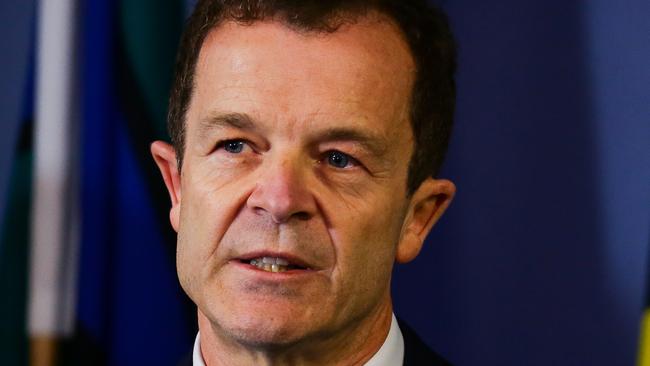‘Grey area’ of NSW sex consent laws clarified
People will be required to seek clear verbal or behavioural assurances that partners are consenting to sex under NSW reforms.

People will be required to seek clear verbal or behavioural assurances that partners are consenting to sex under NSW reforms backed by police and victims’ advocates that are intended to prevent cases of sexual violence being dismissed at trial.
The overhaul, arising out of a lengthy inquiry into consent laws, will mandate that a person does not consent to sexual activity unless “they said or did something” to communicate their wishes.
Additional reforms would see new jury directions made available for judges in order to address “common misconceptions about consent” arising at trials. These would clarify that sexual assault can occur between acquaintances or people who are married, but also that offences are not always accompanied by threats, violence or physical injuries.
The directions would also highlight that there is no “normal or typical response” to a sexual assault, ensuring juries do not rely on preconceptions about how people react in the aftermath of an incident. The way a person is dressed, or whether or not they had consumed drugs or alcohol, would also not imply consent under the jury directions.
The test for consent could involve “saying something” or providing a “facial expression with a gesture”, according to Attorney-General Mark Speakman, who cautioned that the government did not want to overprescribe conditions of consent and preferred people to use “common sense.”
NSW Bar Association president Michael McHugh SC said he was deeply concerned that the “ill-considered” proposals could result in significant injustice and criminalise behaviour that “to all intends and purposes is consensual … This approach would potentially criminalise many consensual sexual relations.”
Criminal trials will also require that an accused person no longer simply believes they were given consent by their partner, but also to prove they took reasonable steps to obtain consent.
“You just can’t assume through lack of resistance or lack of protest that consent has been given. It’s very simple: consent has to be communicated by the other party saying or doing something,” Mr Speakman said.
The government is introducing the laws in large part to clarify the “grey area” of consent that arises routinely during sexual assault complaints. Of about 15,000 sexual assault incidents reported to NSW police in the 12 months ending June 19, just 1099 resulted in charges being laid.
Only 376 ended in a guilty verdict, according to a report produced by the NSW Law Reform Commission’s inquiry.
“We are failing the people of NSW and the key issue has been consent – it is a grey area, it has been a challenge for police, it has been a challenge for the justice system,” said NSW police commissioner Michael Fuller.
“We don’t stand for that as a community. This issue of consent – we need to do so much more.”
Some advocates are doubtful the reforms would be effective, and said while they were meaningful as a symbolic gesture, they would not make a material difference during trials.
“Affirmative consent laws are already in place in Tasmania and these laws have had no impact on the number of victims coming forward or the rate of guilty pleas,” said Greg Barns SC, of the Australian Lawyers Alliance.
The government will adopt or agree-in-principle to all 44 of the inquiry’s recommendations. The reforms are also intended to address what has become known as the “freeze response” scenario, where a person is unable to communicate consent during a sexual encounter, usually out of fear.
Mr Speakman conceded that while they were likely to promote a cultural shift that reduced the number of complaints, they may not “magically fix” the problem or increase convictions at trial.
Standing beside the Attorney-General for the announcement was Saxon Mullins, whose case of sexual assault outside a Sydney nightclub prompted the review of consent laws and galvanised the community.
Ms Mullins’s case lasted five years and involved a trial, a retrial and two appeals. The case centred on whether she had consented to the encounter and the accused’s knowledge that she had not consented. The Court of Criminal Appeal ultimately ruled the case should not proceed to a third trial.
Women’s Safety NSW chief executive Hayley Foster said it was good that affirmative consent was now “over the line” but she was concerned there had been no steps taken to make the legal process less harrowing for victims.
“We can’t just kick the can down the road with another research project,” she said.



To join the conversation, please log in. Don't have an account? Register
Join the conversation, you are commenting as Logout